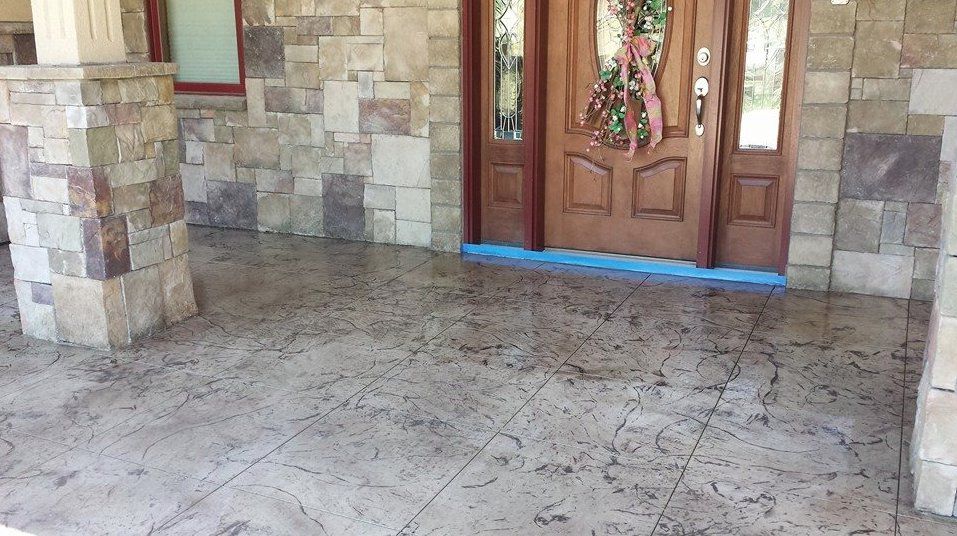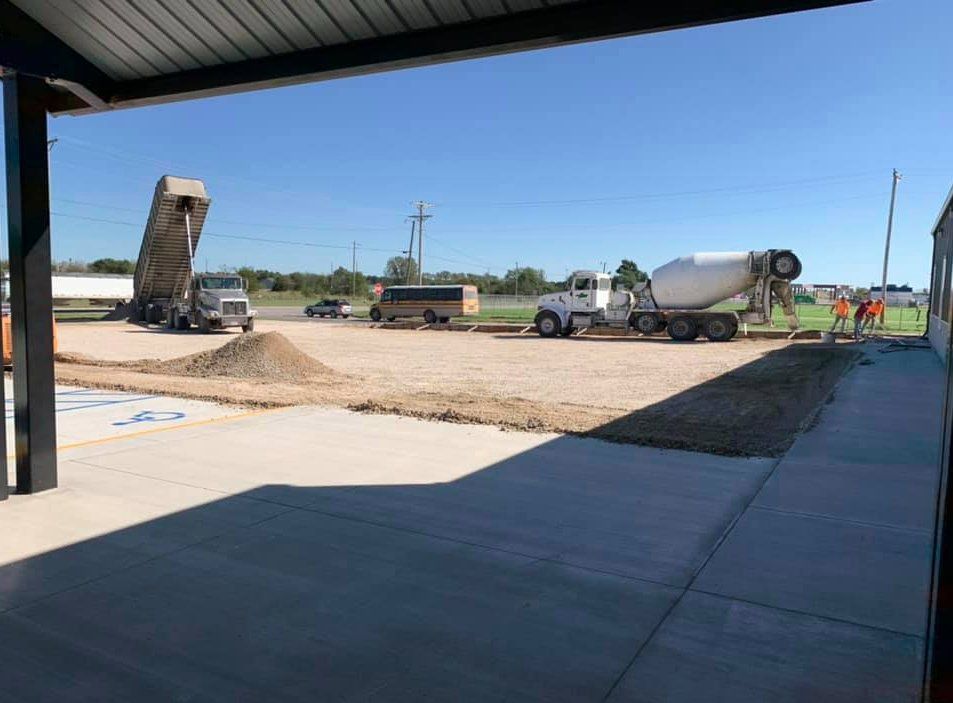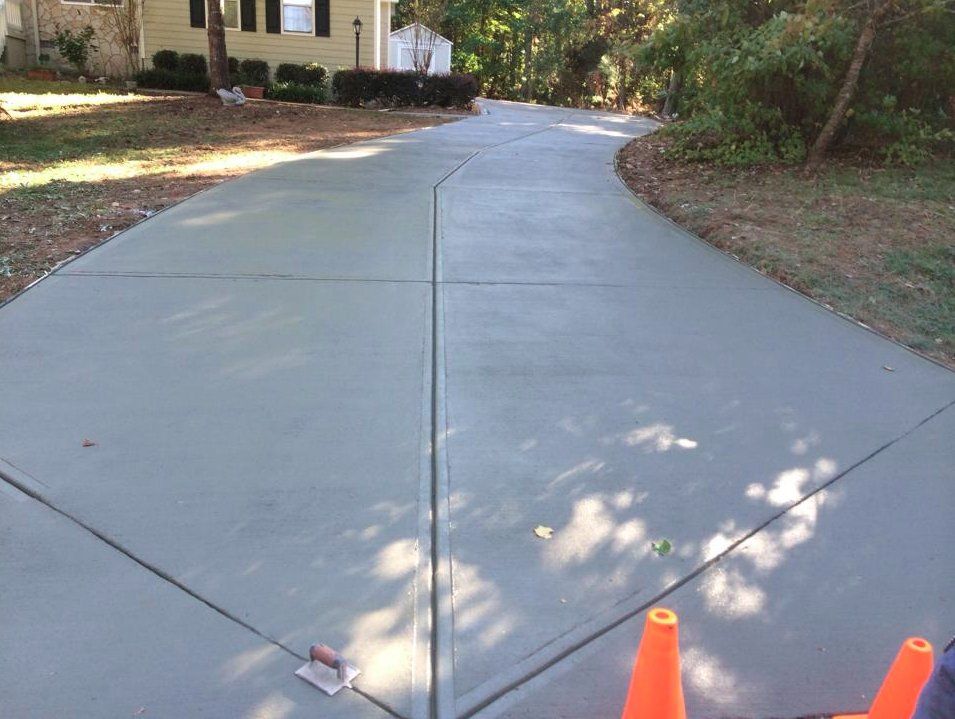What Type Of Concrete Sealer Should I Use?
Concrete Lincoln | C&C Contractors

WHAT TYPE OF CONCRETE SEALER SHOULD I USE?
Concrete sealers are chemical substances necessary to prevent staining, extreme temperatures, water erosion, oil, dirt, and other contaminants on concrete surfaces. They protect concrete surfaces and floors with a strong permanent or temporary protection layer. Concrete sealers help enhance the durability of concrete while also managing its appearance by protecting it from moisture.
Choosing the right sealer will impact both appearance and performance. Compare the various concrete sealers below to see which is best for your project.
Acrylic Concrete Sealers
Acrylic sealers are the most commonly used concrete sealers in the industry. Aside from being cost-effective, their application is simple and quick. They can be used immediately after the installation of concrete and are known to have remarkable recoating abilities. Furthermore, some acrylics are UV resistant.
Moreover, acrylics are an excellent choice if you're looking for a concrete sealer that is resistant
to moisture, de-icing salt, and chemical or oil absorption. Acrylic sealers prevent anything from slipping through the cracks despite being thinner than other types of concrete sealers,
Water-Based Acrylic Sealers
Acrylic sealers suspended in water have several advantages over solvent-based concrete sealers, which are the other main type. Water-based concrete sealers do not release harmful vapors into the atmosphere, are safer for workers, and are less expensive and easier to apply. They last longer than solvents and help to reduce sealer issues like bubbling and roller marks.
Solvent-Based Acrylic Sealers
Solvent-based acrylic sealers outperform water-based acrylics in outdoor applications, particularly in color enhancement. They provide a darkening effect that some customers prefer, giving the concrete surface a nice, wet appearance.
In terms of recoating, solvent-based acrylics are far more practical than water-based acrylics because they do not require any additional preparation before recoating, whereas water-based acrylics must be screen sanded before recoating can be applied.
Penetrating Sealers
Penetrating sealers absorb into the concrete to keep water from getting in and allow vapor to escape from the surface. They provide invisible protection while preserving the natural appearance of concrete surfaces without changing the look of the concrete surface.
Penetrating concrete sealers are versatile enough to protect bare concrete surfaces from staining, UV rays, erosion, weather, and extreme temperatures. They are highly resistant to extreme heat and freezing temperatures, which can cause concrete surfaces to disintegrate.
Penetrating concrete sealer is preferred over film-forming sealers such as acrylic or polyurethane for coating frictional surfaces such as walkways and driveways. This is because it does not leave a glossy film on the concrete surface, which increases its slipperiness. It also contributes to the durability of concrete surfaces such as sidewalks, driveways, and patios.
Silicone Concrete Sealers
Silicone concrete sealer is a short-term sealant that protects surfaces temporarily. This means you'll have to recoat at regular intervals. As a result, they are typically used for temporary purposes, such as on concrete walls to protect against graffiti or on other vertical concrete surfaces that are exposed to dust and require regular cleaning.
Silicone concrete sealers preserve the natural appearance of concrete surfaces by penetrating deep within the concrete surface. Silicone sealers are an excellent choice for preserving the appearance of surfaces.
Polyurethane Sealers
Polyurethane concrete sealer is nearly twice as thick as an acrylic concrete sealer. It provides stiff protection against erosion and chemicals by forming a sturdy safeguarding film on the surface. It provides excellent durability and keeps the surface from yellowing. Its finish ranges from a slight sheen to a high gloss and protects against staining and scuffing. Polyurethane sealers are available in two varieties: solvent and water-based.
Polyurethane sealers are perfect for interior and exterior surfaces subject to constant foot and car traffic, such as walkways, shopping malls, amusement parks, and café floors.
Polyurethane sealers are abrasion resistant and flexible, allowing them to withstand impacts that weak acrylic sealers cannot. As a result, they perform admirably on garage floors.
Epoxy Sealers
Epoxy sealers are distinguished by a thick protective film on the concrete surface, providing a robust, long-lasting, and abrasion-resistant layer. They are also extremely effective as a water repellent. Epoxy sealers are much harder than acrylic concrete sealers and are an excellent choice for concrete countertops and kitchen surfaces.
Epoxy sealers are ideal for design purposes because color pigments can be added easily, and they leave behind a glossy surface. A high-gloss epoxy finish enhances the surface color of decorative floors, bringing the design to life. Additionally, it would help protect the floor from damage and foot traffic. Similarly, by adding an anti-slip aggregate, they can be used for garage floors and factory surfaces.
CONCRETE SEALING CONTRACTOR In Lincoln and Omaha, NE
Is it time to upgrade your concrete? Contact us today for a free quote and discover why C&C Concrete Contractors has become the top concrete sealing contractors in Lincoln and Omaha, NE!
You might also like
Book a Service Today
We will get back to you as soon as possible
Please try again later
C&C Concrete Contractors
Navigation
Navigation
Services
Working hours
- Mon - Sat
- -
- Sunday
- Closed
Copyright C&C Concrete Contractors | Proudly Powered by Snapps


